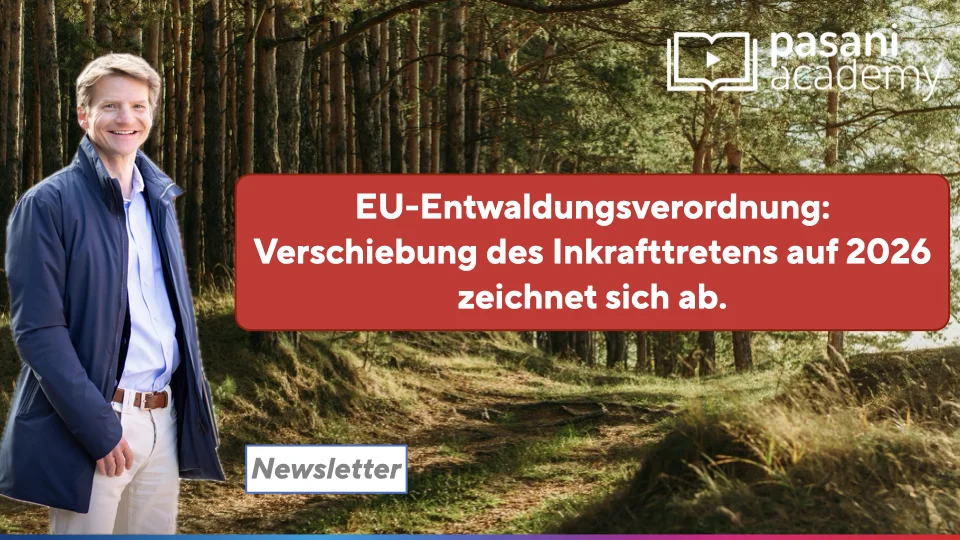Sie haben Fragen?
Error: Contact form not found.

The planned EU deforestation regulation, which is intended to prevent the import of products that contribute to deforestation, is to be postponed until 2026. This postponement, which affects many players in the affected sectors, offers companies the opportunity to take a closer look at the requirements and make the necessary adjustments.
The aim of the Deforestation Regulation is clear: the EU wants to ensure that imported goods such as soya, palm oil, coffee, wood, rubber, cocoa, beef and other products made from these raw materials do not originate from areas that have been destroyed by deforestation. These stricter requirements are intended to counteract the global destruction of forests and mitigate the negative consequences for the climate, biodiversity and local communities. The original plan was for the regulation to come into force in January 2025. However, due to complex discussions and numerous demands for adjustments, the European Union Parliament has now agreed to the postponement. The Council of Ministers of the European Union must now confirm the decision before it can finally enter into force.
This decision creates more time for the affected companies and trading partners to implement the necessary measures and harmonise their supply chains with the new requirements. Even though this may be a relief for many companies, the need for a changeover remains. Especially for companies operating in the food or raw materials sector, it is advisable to use the coming months to prepare intensively. The delay to 2026 should not be seen as a signal to wait and see, but as an opportunity to establish sustainable processes.
In addition to the postponement, there were also further discussions regarding the details of the regulation. There are signs of a trend towards a moderate softening, particularly with regard to traceability requirements and documentation obligations. Nevertheless, the core objectives of the regulation remain the same – to strengthen the protection of the world’s forests and contribute to more sustainable production.
This means that companies need to ensure transparency in their supply chains and respond to the requirements of the regulation at an early stage. Training, workshops and close cooperation with suppliers will be important building blocks for successful implementation. Use the time until 2026 to optimise your strategic positioning and secure long-term competitive advantages.
Would you like to find out all the background information on the EU deforestation regulation and stay up to date on possible changes? With our annual customs update, you won’t miss any relevant topics on customs, foreign trade and export controls.
Error: Contact form not found.